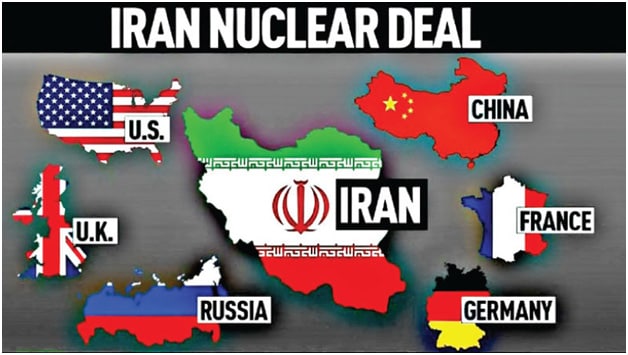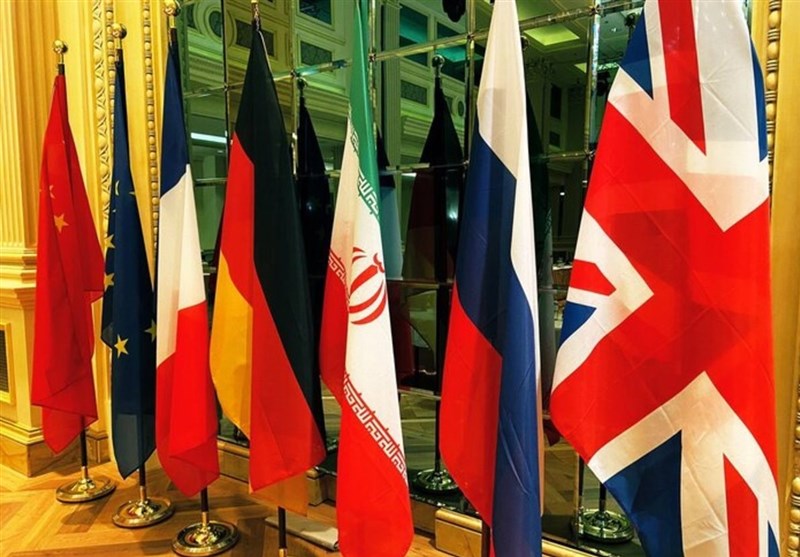JCPOA and the October Outcome
JCPOA and the October Outcome: The JCPOA negotiations encountered an unexpected hurdle when Iran presented its latest demands to the U.S. during talks over a text prepared by the European Union, which had initially been agreed upon in Vienna. The situation unfolded with the U.S.’s direct response to Iran’s demands, describing Iran’s final requests as a significant step backward.
The phrase ‘step backward’ has been repeatedly used by American officials in recent times following Iran’s response. Despite this, it should be noted that the American reaction has gradually shifted towards expressing dissatisfaction with Iran’s final demands. Maximum efforts were made to reach a point of understanding before ultimate frustration, at least from the American side.
The European Union and its foreign policy chief are satisfied with the text they prepared and have blamed Iran more than the U.S. for the resulting situation. In the past two weeks, stakeholders involved in the JCPOA have altered the status of the agreement with actions and events in other areas.
The JCPOA is functioning
In previous reports, we clearly explained that the JCPOA structure is a mechanism for controlling Iran’s nuclear program and for the International Atomic Energy Agency (IAEA) to monitor its facilities and activities. This structure was established by the U.S. and its allies, with full cooperation from China and Russia, in the JCPOA negotiations and the finalized mechanisms in the 2015 agreement. Over the years, it has continued to function dynamically and earnestly.
In response to Trump’s withdrawal from the JCPOA, Iran reported all changes in its program to the IAEA. On the other hand, specific programs being carried out in Iran’s nuclear facilities, which were attempted to be kept secret, were monitored by the IAEA. The precise examination of these matters has created problems for Iran, which now struggles to close the file on these issues as soon as possible without announcing the results of the investigations led by Rafael Grossi.
The JCPOA is not a structure for delivering money and lifting sanctions from Iran, and it has effectively performed its intended role. The increase in enriched uranium levels in Iran and other activities reported by the IAEA before the Board of Governors’ meeting are evidence of such a powerful function.
What has changed
Significant changes in the last two weeks of September have taken the JCPOA negotiations in a new direction. The first change was the Biden administration’s stronger stance in expressing dissatisfaction with Iran’s latest responses and, in parallel, the beginning of interactions with Iran through various means. Robert Malley established serious contact with Iran through the Qataris, and Iran clearly tried to keep the JCPOA negotiations alive in New York on the sidelines of the UN General Assembly events.
Iran’s intensified efforts to maintain the negotiation process and sustain an international breathing space through established relations are key aspects of Iran’s international diplomacy in recent weeks.
A significant change necessitating Iran’s maximum need for the JCPOA negotiation space is the developments in Russia’s invasion of Ukraine. Iran, by complying with Russia’s orders and preparing drones for its military, found itself involved in the European conflict, never anticipating consequences beyond being sanctioned. The hidden dimensions of this military cooperation are now being gradually revealed, and meanwhile, Ukrainians have officially warned about Iran’s assistance to the Russians, reducing diplomatic relations with Iran, and pressuring the U.S. and Europe to confront Iran on this issue.
Iran’s entanglement in its cooperation with Russia in Ukraine has intensified with Israel’s involvement. Ukrainians began security cooperation with Israelis to counter Iran’s drone program from early September, and alongside this security cooperation, Israel has sent special anti-drone missile systems to Ukrainians through Poland.
The latest event was the attack by Iranian Shahed 136 drones on the city of Uman in Ukraine, a significant center for Jews and Israelis. On September 28, Ukrainian officials made unexpected statements that their latest security information indicated that Iran’s drone assistance to Russia was conditional on attacks on Jews and Israelis in Ukraine. The implicit confirmation of such news by Western officials will intensify Western, especially European, motivations to apply serious pressure on Iran.
Changes in U.S. and Israeli domestic politics should also make Iran aware of the importance of keeping the JCPOA negotiation space open. Israeli elections have been overshadowed by statements from Yair Lapid, the country’s Prime Minister, who has openly spoken of his country’s success in changing the course of the JCPOA negotiations and preventing an agreement.
This is an achievement that, although not entirely accurate as per Lapid’s statements, holds significance for him and his coalition in the November elections. After Americans clarified their dissatisfaction with Iran’s latest positions, Israelis spoke with greater confidence about toppling the JCPOA and even shaping a new agreement based on establishing a structure reliant on a serious military threat against Iran. Joint maneuvers between Israel and the U.S. during this specific period are fulfilling such Israeli demands from the Pentagon.
On the other hand, in the U.S., with the onset of the hottest round of the 2022 election campaigns, the Biden administration naturally, and as expected, shows little inclination to demonstrate any alignment or cooperation with Iran in any area. Any agreement, understanding, or cooperation with Iran would have a negative impact on public opinion, a specific point that America’s most prominent security experts warned about months ago.
Iran’s best opportunity for understanding with the U.S. was before reaching October. In the current situation, Iran must endure special concessions and compromises to keep the negotiation space open and reach an informal and implicit agreement in these weeks. It’s unlikely that the U.S. would publicly confirm such informal agreements and understandings if finalized until after the November elections in that country. During this period, reaching an implicit agreement and issuing special licenses for Iran’s economic structures poses a high risk for the U.S. government. Iran is losing significant opportunities in the energy market, and this is considered a historical loss.

What is being lost and what Iran is in a hurry for
The German Chancellor conducted his Gulf tour focused on energy purchase agreements from the Arab Gulf sheikhs and achieved good results. India is diversifying its energy purchase sources, and it’s unlikely that, in turning to the Gulf, it would risk prioritizing Iran. China, apart from reducing its demand, has signed special agreements with the Russians and obtained historical discounts from them.
The October and November period is the finalization period for the last remaining spaces for winter energy export contracts, with the remaining opportunities dwindling day by day. The private structures and plundering oil brokers, linked to their wallets by the Supreme Leader’s resistance economy decree, cannot compete with cheap Russian oil, and all these losses are being imposed on the Iranian people during the sanctions period.
Finally, it should be noted that recent events in Iran and the protests following the tragic death of Mahsa Amini have severely worsened Iran’s international standing. In a situation where the media coverage of the public protests and their suppression has resulted in the most unprecedented coverage of Iranian news in the West since 2009, Western officials are more reluctant than ever to demonstrate any understanding or agreement with Iran.
It’s no wonder that the Foreign Minister of the current Iranian government is eager to keep the negotiation space open, and the head of Iran’s Atomic Energy Organization eagerly headed to Vienna and the IAEA General Assembly to win over Rafael Grossi.
If interested, you can read the exclusive Iran Gate report titled ‘What is the impact of new US sanctions on Iran’s economy?’ Also, the dedicated JCPOA negotiations page is available to you from the menu.

